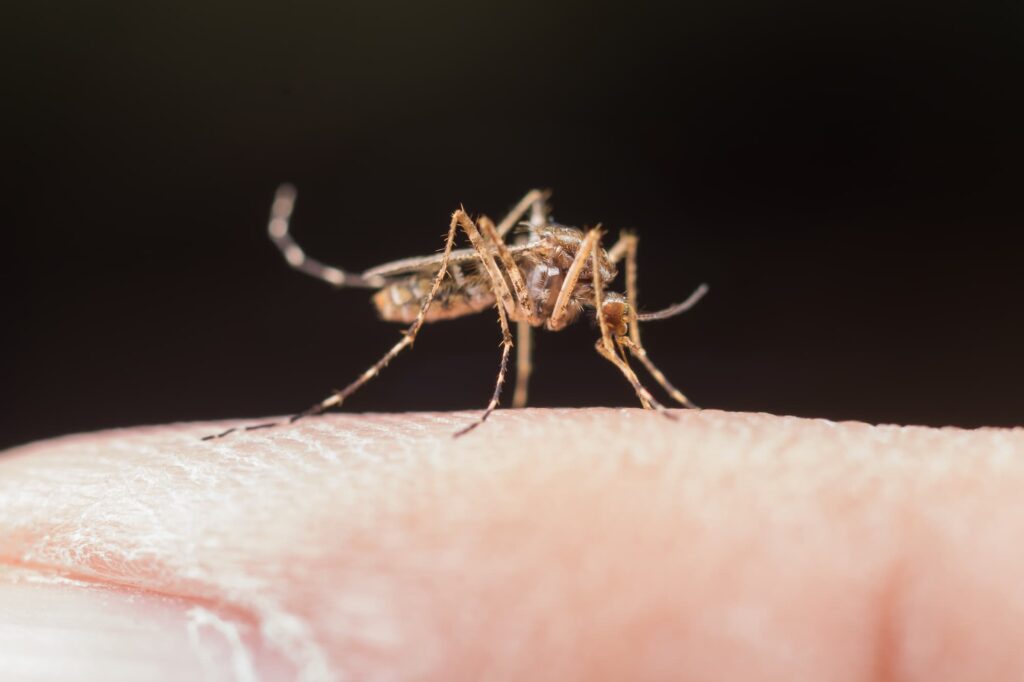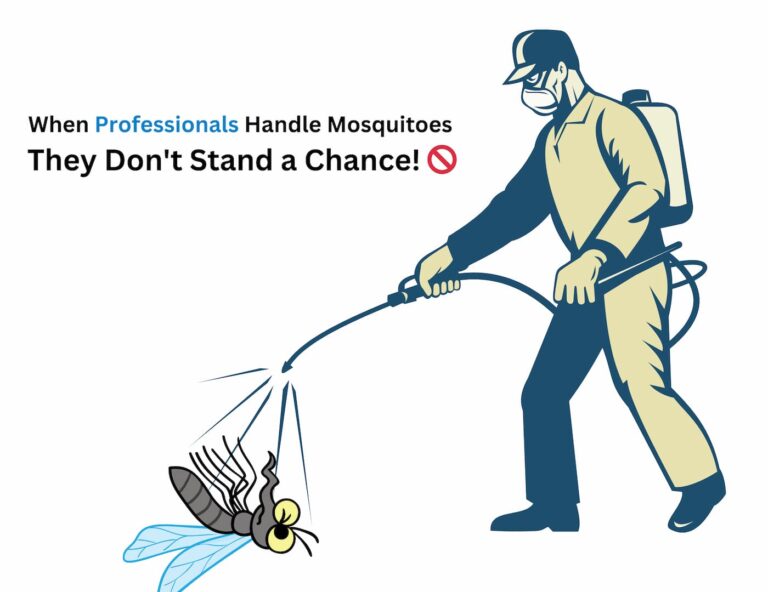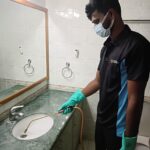The Role of Clean Homes in Bangalore’s Fight Against the Growing Dengue Threat

Bangalore, often referred to as the Silicon Valley of India, is a city known for its rapid urbanization, IT hubs, and a vibrant culture. However, it also faces its share of health challenges, particularly when it comes to vector-borne diseases like dengue. With the rapid population growth and changing climate patterns, Bangalore has seen an increase in dengue cases in recent years.
While authorities and healthcare professionals are working diligently to combat this disease, there are steps we can take at home to protect ourselves and our families. One such step is maintaining clean homes.
Understanding the Dengue Threat
Dengue is a viral disease transmitted primarily through the bite of infected Aedes mosquitoes, particularly Aedes aegypti. These mosquitoes are commonly found in urban and semi-urban areas, making cities like Bangalore susceptible to dengue outbreaks.
“Amidst the bustling streets of Bangalore's charm,
Lies a hidden threat, causing alarm,
Dengue infection, its presence felt,
Yet through prevention, we can surely melt”
About Aedes Mosquitoes
The Aedes mosquitoes responsible for transmitting dengue are most active during the daytime, with peak biting periods in the early morning and late afternoon. They are known to breed in and around human dwellings, especially in areas with stagnant water sources. These mosquitoes lay their eggs in containers holding water, such as flower pots, discarded tires, water storage containers, and open tanks.
“With stagnant waters as its breeding ground,
The Aedes mosquito lurks around,
Dengue infection, its presence felt,
In stopping this menace's deadly strid”
How is Dengue Transmitted?
The transmission of dengue occurs as follows:
Mosquito Bite: An Aedes mosquito carrying the dengue virus bites a human to obtain a blood meal.
Virus Entry: The virus from the mosquito’s saliva enters the human’s bloodstream during the bite.
Incubation Period: After infection, there is an incubation period during which the virus multiplies in the human’s body. Dengue fever usually occurs after an incubation period of 4-10 days after the bite of the infected mosquito
What are the Symptoms of Dengue?
High Fever: Sudden and high-grade fever is often one of the initial symptoms of dengue. The fever can spike up to 104°F (40°C) or higher.
Severe Headache: Dengue fever is often accompanied by an intense headache, which can be debilitating.
Pain Behind the Eyes: Many individuals with dengue experience pain behind the eyes, often described as a deep, aching sensation.
Joint and Muscle Pain: Dengue fever is also known as “breakbone fever” because of the severe joint and muscle pain it causes. This pain is often likened to the feeling of bones breaking.
Rash: Some individuals develop a rash that can appear a few days after the onset of fever. The rash may be maculopapular (red spots) and is usually seen on the limbs and trunk.
Bleeding Symptoms: Dengue fever can lead to bleeding manifestations, which can include:
- Nosebleeds: Spontaneous bleeding from the nose.
- Gum Bleeding: Bleeding from the gums and easy bruising.
- Petechiae: Small red or purple spots on the skin, often associated with bleeding under the skin.
- Hematuria: Blood in the urine.
- Melena: Dark, tarry stools due to gastrointestinal bleeding.
Nausea and Vomiting: Some individuals with dengue experience nausea and vomiting.
Fatigue and Weakness: Dengue fever can leave individuals feeling extremely fatigued and weak.
Loss of Appetite: A decreased appetite is common during the illness.
Severe Dengue: In some cases, dengue can progress to a more severe form known as severe dengue or dengue hemorrhagic fever. This can lead to potentially life-threatening complications, including severe bleeding and organ failure.
According to recent data
From 689 cases in June, it surged to 1,589 in August 2023. In the month of July 2023, there were 1,629 cases within the BBMP limits. From September 1 to September 8 2023, 416 dengue cases have been reported by the Bengaluru civic body.
The statistics shared by the civic body shows that while there were 44,863 dengue cases in 2019, the numbers came down to 6,679 in 2020. Similarly, there were 6,166 cases in 2021 and 5,589 cases in 2022.
Dengue cases tend to spike during the monsoon and post-monsoon periods (July to October). This seasonal pattern reflects the mosquito breeding season.
Bengaluru Urban and Bengaluru Rural districts are among the most affected areas, mainly due to their urbanization and suitable mosquito habitats.
The Role of Clean Homes
Keeping your home clean and well-maintained is not just about aesthetics; it can play a crucial role in preventing dengue transmission. Here’s how:
Eliminating Breeding Sites

“Empty all containers that hold rain,
No stagnant pools where they can remain,
Cover water tanks with sturdy lid,
So mosquitoes find no place to hid.”
Aedes mosquitoes breed in stagnant water. Even small containers, such as flower pots, unused tires, or clogged drains, can become breeding grounds for these insects. By regularly cleaning and maintaining your home’s surroundings, you can eliminate potential mosquito breeding sites.
Mosquito Lifecycle: To understand the importance of eliminating breeding sites, it’s essential to know the mosquito’s lifecycle. Aedes mosquitoes, responsible for transmitting dengue, go through four stages: egg, larva, pupa, and adult. The female mosquito lays its eggs in stagnant water, and these eggs hatch into larvae, which then develop into pupae before becoming adult mosquitoes.
Stagnant Water: Aedes mosquitoes prefer laying their eggs in stagnant or still water. This can include small containers, puddles, open tanks, clogged gutters, discarded tires, and even flower vases with water. These breeding sites are often found in and around residential areas.
Preventing Breeding: By eliminating stagnant water sources around your home and community, you disrupt the mosquito’s breeding cycle. When water collects in the saucers or trays beneath potted plants and doesn’t drain properly, it can become stagnant. This stagnant water provides an ideal environment for female mosquitoes to lay their eggs. And also most of the time it might be challenging to prevent stagnant water in your area,
To safeguard yourself it is better to avail mosquito pest control services or general pest control service in Bangalore from Clean Fanatics. This proactive step helps prevent mosquitoes from entering your house, thereby reducing the risk of dengue transmission.
Reduction in Mosquito Population: When breeding sites are removed or properly maintained, it leads to a significant reduction in the mosquito population. Fewer mosquitoes mean fewer opportunities for dengue transmission. When there’s no suitable water source for egg-laying, mosquitoes cannot reproduce effectively.
Reducing Clutter
A cluttered home provides hiding places for mosquitoes. Regular cleaning and decluttering can reduce these hiding spots, making it harder for mosquitoes to thrive indoors.
Enhancing Visibility: Decluttering also improves visibility and access to potential mosquito breeding sites. It allows you to identify and address areas where water may accumulate more effectively. For instance, you can spot and address blocked gutters, open tanks, or containers with water that may not be apparent when your surroundings are cluttered.
Minimizing Hiding Spots: Clutter provides hiding spots for mosquitoes during the day when they are less active. By reducing clutter, you create a less hospitable environment for mosquitoes. When there are fewer places for mosquitoes to hide indoors or in outdoor clutter, it becomes more challenging for them to enter your living spaces.
Personal Protection: A clutter-free living space is easier to maintain and keep clean. This includes ensuring that doors and windows have screens or seals to prevent mosquitoes from entering. Maintaining these protective measures reduces your exposure to mosquito bites, further decreasing the risk of dengue infection.
Mosquito Nets and Repellents

Using mosquito nets over beds and applying mosquito repellents can provide an added layer of protection, especially during dengue outbreaks.
Barrier Protection: Mosquito nets act as a physical barrier between you and disease-carrying mosquitoes. When properly used, they create a protective shield around your sleeping area, preventing mosquitoes, including the Aedes species responsible for dengue transmission, from coming into contact with you while you sleep.
“Screen windows and doors, keep them shut tight,
Protecting homes from bites in the night,
Wear long sleeves and insect repellent too,
Shielding ourselves from this illness that's true.”
Dengue Transmission Prevention: Aedes mosquitoes that carry the dengue virus are primarily active during the day, but they can also bite at night. Sleeping under a mosquito net helps ensure that you are not exposed to these mosquitoes during their feeding hours.
Protection for Vulnerable Populations: Mosquito nets are especially beneficial for vulnerable populations, such as infants, young children, pregnant women, and individuals with weakened immune systems. These groups are at higher risk of severe dengue, and using nets can significantly reduce their chances of being bitten.
Mosquito Pest Control Services

Mosquito pest control services play a crucial role in dengue prevention by effectively reducing mosquito populations and creating a safer living environment. They provide targeted mosquito elimination to control methods to reduce mosquito populations and minimize the risk of dengue transmission. By partnering with mosquito control professionals, individuals and communities can take proactive steps to create a safer and healthier living environment.
Regular Cleaning and Maintenance
Dengue prevention starts with regular cleaning and maintenance of your home. Here are some specific areas to focus on:
Rain Gutters: Clean and unclog rain gutters to prevent water accumulation.
Containers: Empty and clean containers that collect rainwater.
Potted Plants: Avoid over watering potted plants and ensure proper drainage.
Trash: Dispose of trash properly to avoid creating breeding sites.
Unused Items: Remove or cover unused items that can collect water.
Roof Leaks: Repair any roof leaks that can lead to water accumulation.
Hiring professional cleaning services in Bangalore for busy professionals can be a proactive measure in preventing dengue. Busy professionals often have limited time for thorough cleaning. Professional cleaning services allow them to delegate the task, freeing up valuable time that can be spent on other important activities. This ensures that cleaning tasks are not neglected, reducing the risk of dengue transmission.
“Let's come together, Bangaloreans strong,
In this battle against dengue, we belong,
With awareness and action, we shall prevail,
Protecting our city, without fail”
Conclusion
In a busy city like Bangalore, where dengue is a concern, maintaining clean homes is a practical and effective way to protect yourself and your family from this disease. By eliminating mosquito breeding sites, reducing clutter, regular cleaning & maintenance and implementing other preventive measures, you can contribute to a healthier and safer environment for everyone in your community. Let’s work together to keep Bangalore clean and dengue-free.





